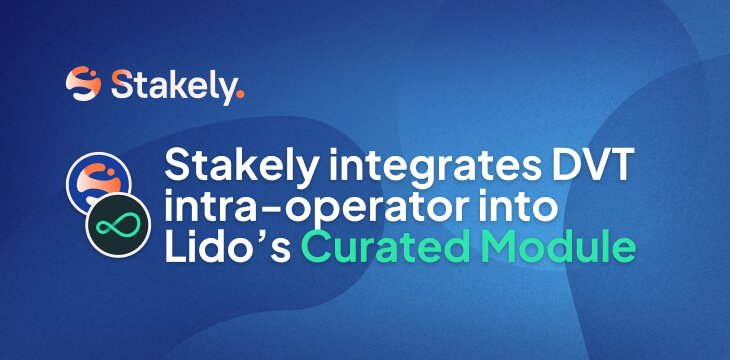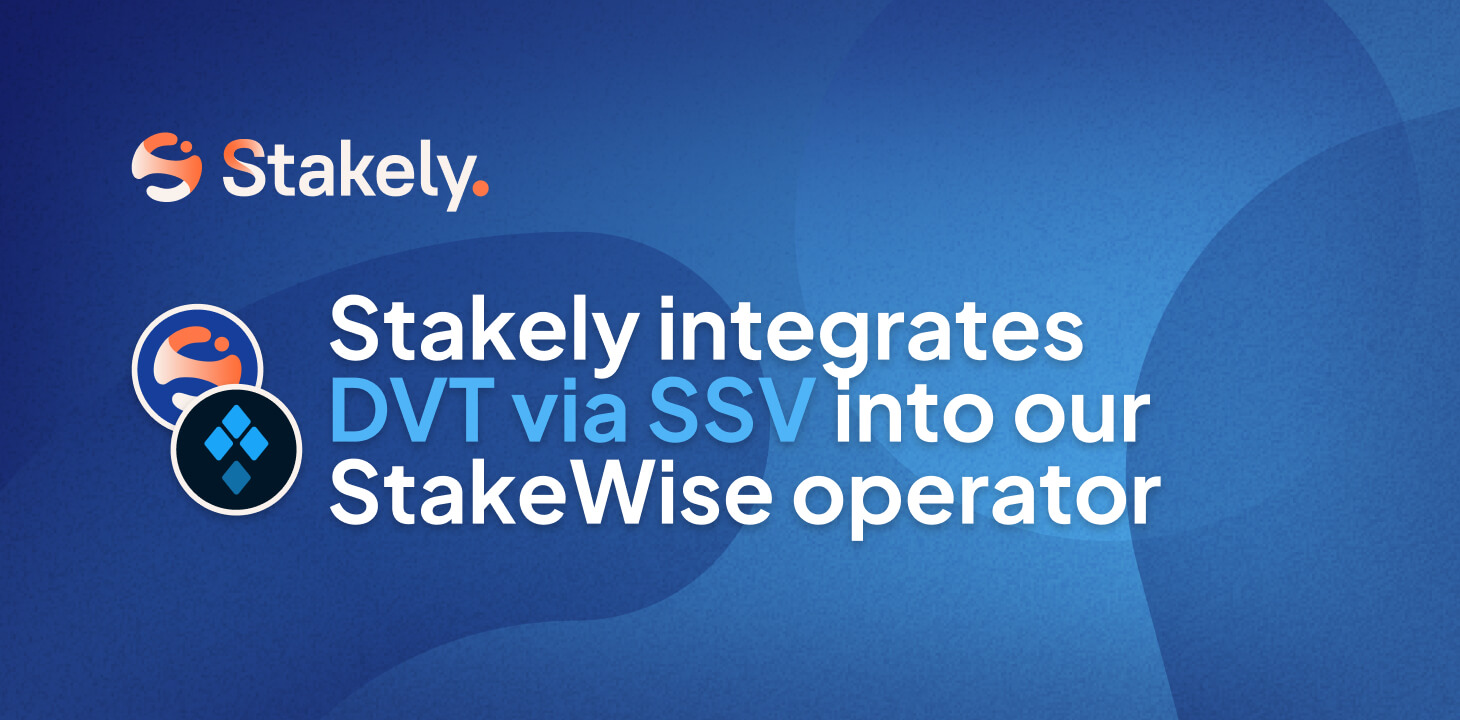Stakely joins SSV as a Verified Operator in its Limited Mainnet of Distributed Validator Technology

Stakely has been selected as one of the 20 Verified Operators in SSV Network's Limited Mainnet, a major milestone in our mission to strengthen and decentralize the Ethereum staking ecosystem. So, what exactly does this mean?
Distributed Validator Technology (DVT) might sound technical, but its impact is tangible. Imagine a world where staking on Ethereum becomes even more secure, more decentralized, and devoid of single points of failure. That's what we're working towards with SSV. Stick around to learn how DVT technology works and why we decided to join forces with SSV!
About SSV Network
SSV Network protocol aims to guide Ethereum towards enhanced security and decentralization. Through Distributed Validator Technology (DVT), SSV Network is addressing the challenges Ethereum validators currently face, including centralization, lack of client diversity, and vulnerability to single points of failure.
Moreover, SSV Network simplifies the technological complexities of staking in Ethereum, making a process that has long been out of reach for many more accessible. In the era of Ethereum staking, SSV is a pathway towards a safer, more inclusive, and resilient network.
About Stakely
Stakely has positioned itself as one of the leading staking node providers in various Proof-of-Stake ecosystems, managing over $700 million in staking and having a significant presence of 1.2% on Ethereum with over 8500 active validators deployed to date.
But that's not all. Since August 2021, Stakely has actively collaborated with SSV, engaging in every new product version. This ongoing partnership has finally culminated in the thrilling mainnet launch.
These achievements, along with our commitment to security and decentralization, have enabled us to join the SSV Network's Limited Mainnet Launch as Verified Operators. What's next in this collaboration? We will work together to enhance client diversity in Ethereum staking, leveraging SSV's cutting-edge distributed infrastructure.
What is DVT? Uncovering Distributed Validator Technology
In the dynamic world of Ethereum,** diversity is a foundational pillar** in strengthening the network. Diversity in clients, servers, and staking providers helps make Ethereum a more robust and decentralized network, avoiding reliance on a single technology or entity. This avoids issues like network halts, which have affected other networks like Solana.
But how does Ethereum tackle this challenge? The answer lies in Distributed Validator Technology or DVT. Its focus is on distribution and cooperation, and we can break it down into 5 key aspects:
Validator Key Fragmentation: DVT splits the validator's unique key into multiple KeyShares, assigning each fragment to a different operating node, thus avoiding the single point of failure that currently exists in Ethereum staking.
Decentralized Collaboration: Node operators work together but without mutual trust dependence. If one fails, the others can continue operating without interruption.
Custom Selection and Diversification: DVT technology allows operators to choose their infrastructure, and stakers to select multiple independent operators based on software diversity, geographic criteria, or any particular interests, thereby fostering network diversity.
Robust System and Enhanced Security: The distributed nature of DVT minimizes risks related to individual failures, attacks, and key storage errors.
Expanded Accessibility: By simplifying the validation process for the end-user and making it more secure, DVT makes Ethereum staking accessible to more people without the need for advanced technical knowledge.
The Future of staking in Ethereum
SSV's vision goes beyond mere technological enhancements; it signifies a transformation in how staking is managed in Ethereum. The transition to a Proof of Stake (PoS) consensus model marked a significant shift, paving the way for greater efficiency, security, and decentralization. Innovations like DVT will drive the network's ongoing evolution, providing innovative solutions to complex problems such as centralization and vulnerability to failures.
We will continue to work on making Ethereum a beacon of innovation and a model for blockchain networks around the world!





